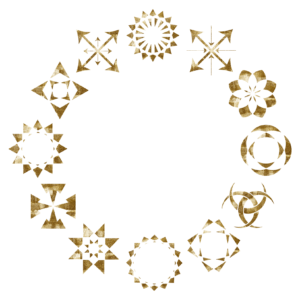Can a crystal ball change someone’s life?
Of the many glittery prizes at a magnificent Gem Show, I was most drawn to a quartz sphere. Its inner contours shone like stars. The orb fit in my hand, yet there were galaxies inside.
Riding in the back of the car with my friend, an amazing event transpired. As we admired the globe, his emerald eyes filled with fascination. We both touched the surface at once. In a flash, an entire world unfolded in my imagination.
It began with two teenagers holding a crystal ball with stars inside. Its magic ensnared them, and they were carried to another dimension. I understood how they found the orb. Who they were. How they felt about each other. Where they would end up. I saw their past and future, the commune where they were trapped, the political landscape that defined it, the species on their planet.
Names of major characters came instantly. Aera shared my passion for music and Cyrrus’s hunger for knowledge reflected my green-eyed friend—but their personalities were distinct from ours. Though the vision began in our hands, the characters created themselves.
I went home and typed a forty-page summary. The next day, I told my friend, “I found my life’s purpose.”
The vision came in 2001, when I was twenty-one years old. As a teen, I’d been pursuing a music career with a focus on singing—until I was stricken with a chronic illness which nearly killed me and left me speaking forever in a whisper. Losing my voice was unimaginable. Since childhood, songs had written themselves through me and lyrics had arisen from the aether. At eleven, an epiphany opened my eyes to complex music theory. I soon understood: Music is divine symmetry, my path to God.
In the absence of rhythmic structure, words seemed capricious. Stories had come to me before in a vivid landscape, but the transition to words on a page was cumbersome and the spirit was lost. Yet now, I was a receptacle for this epic vision. Once it took hold of me, I was in its grasp.
I filled multiple diaries with histories, character backgrounds, religions, and philosophies. Only two people knew about my world. Since I was incapable of actualizing the vision, I was too embarrassed to share it.
Then I received a message from Elliott Lash. He’d been my brother’s friend in elementary school, and I’d barely heard his name since. My most vivid memory of Elliott was he and my brother building large cities out of Lego. Elliott recalled me watching the entire Star Wars series every weekend and then disappearing into my room to write.
I don’t know what possessed me to tell him about Oreni. I was intensely private about my writing, yet I opened up to Elliott on impulse. In response, he offered, “Do you want to use my languages in your book?”
Elliott studied linguistics and had written fictional languages of his own. The expansive Lego cities suggested he was just as obsessive as I, and his brilliance spoke for itself. How could I turn this down? Just as I became excited, Elliott told me his languages evolved through history and could not be separated from the context of his own fictional world.
“No,” I insisted. “I have a world already. I can’t be limited by yours.”
We compared worlds. Both were inhabited by three prominent groups: humans, a nature-loving species with a light on their foreheads, and an antagonistic species with red hair. I had already named ‘the Kalaqhai,’ and he had named ‘the Nestë,’ as well as the ‘esil’ that we’d each envisioned separately. We had both imagined an earth-like planet with spiritual inception. I had branded it ‘Oreni,’ and he had written a mythology about ‘Angels’ and ‘Ilë.’ I’d envisioned a magical object with specific properties—and he’d conceived ‘the Night Gem.’ How could this be? Our visions were eerily identical.



